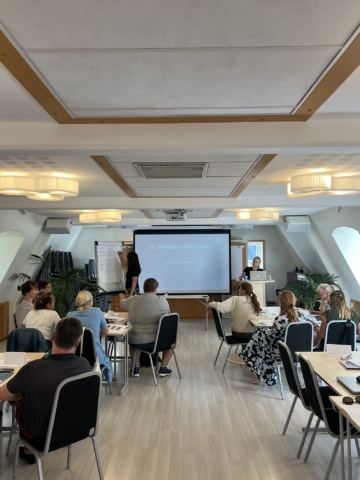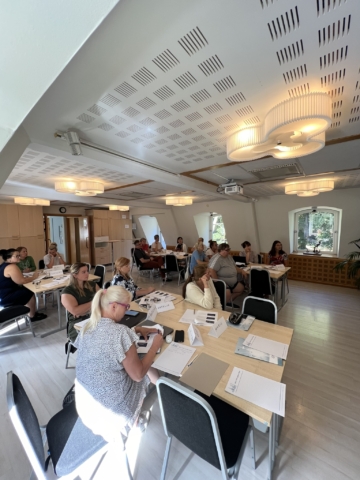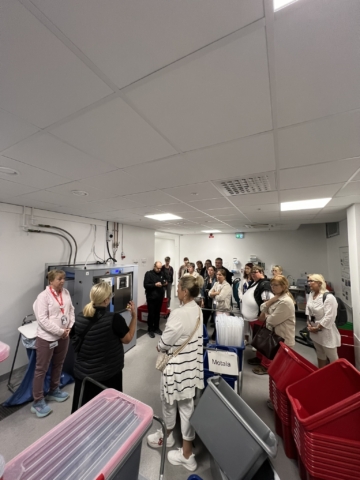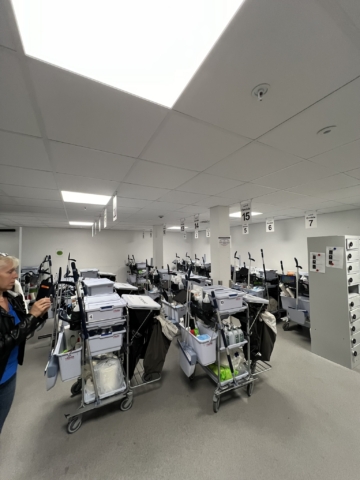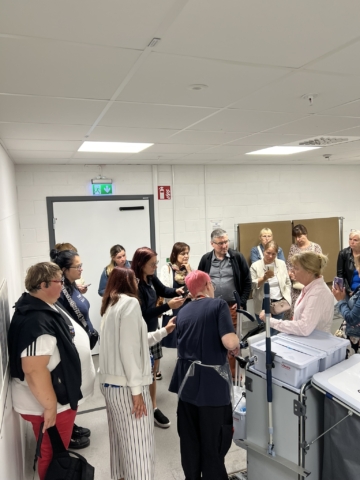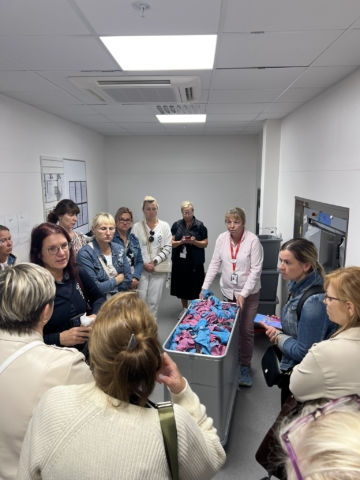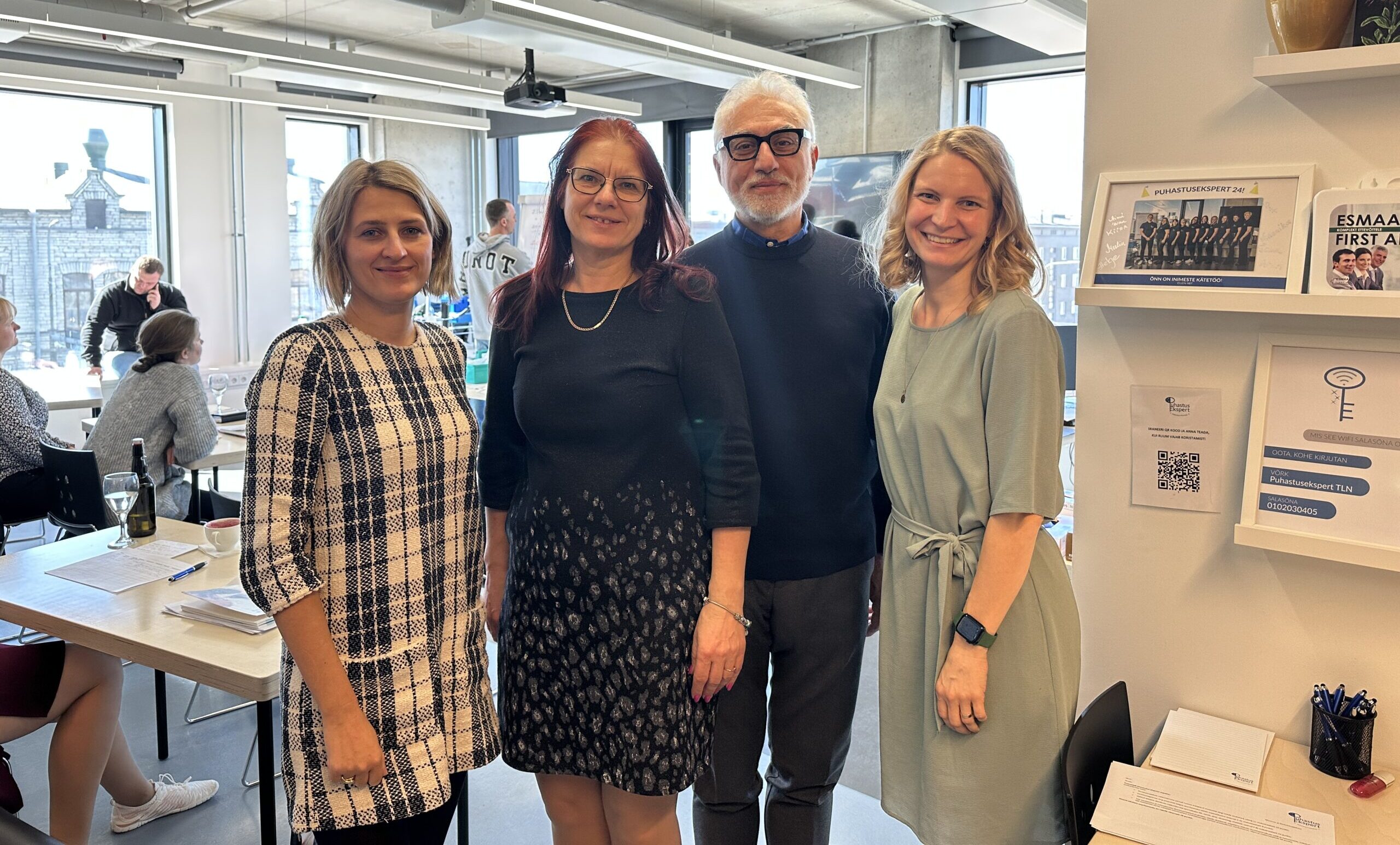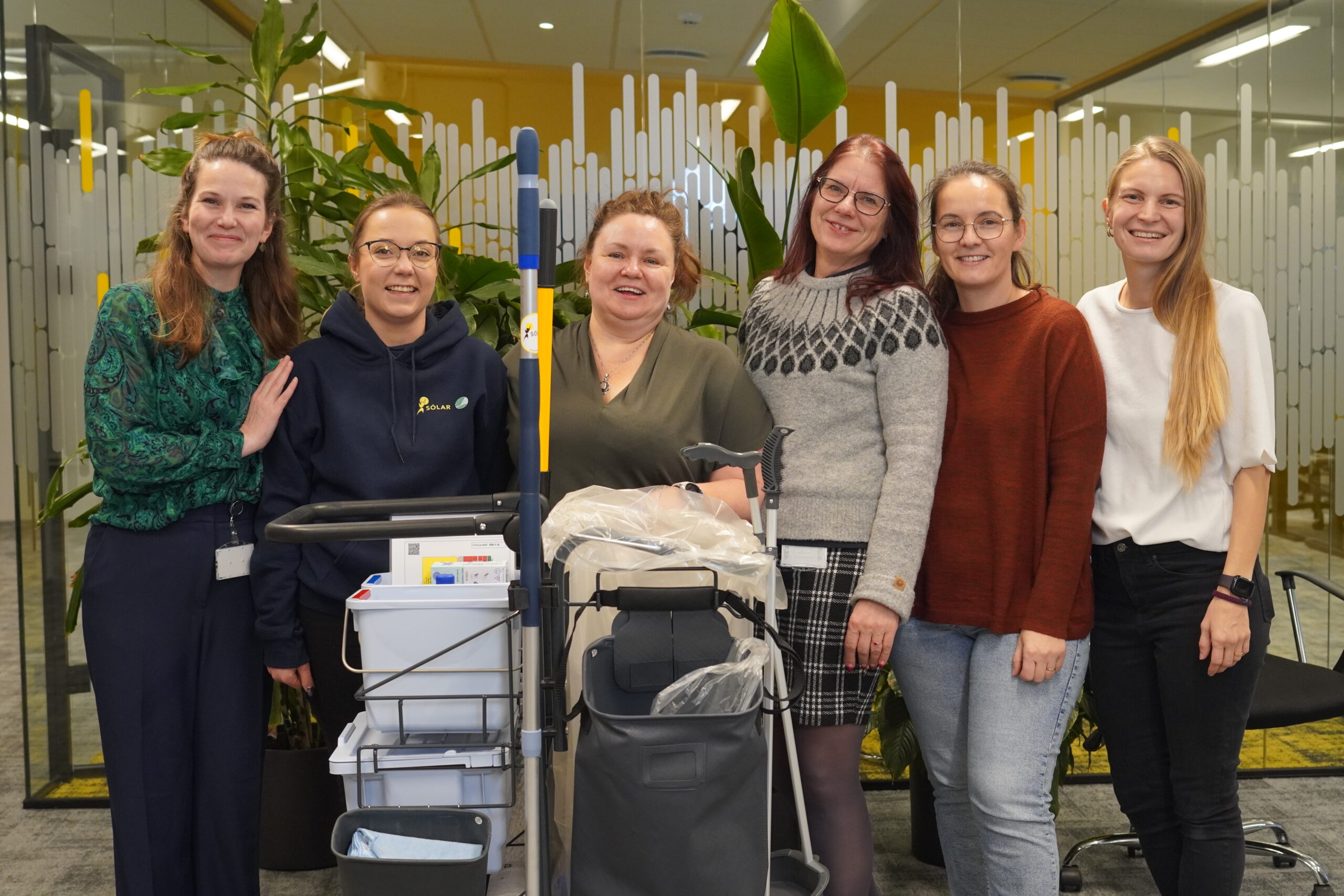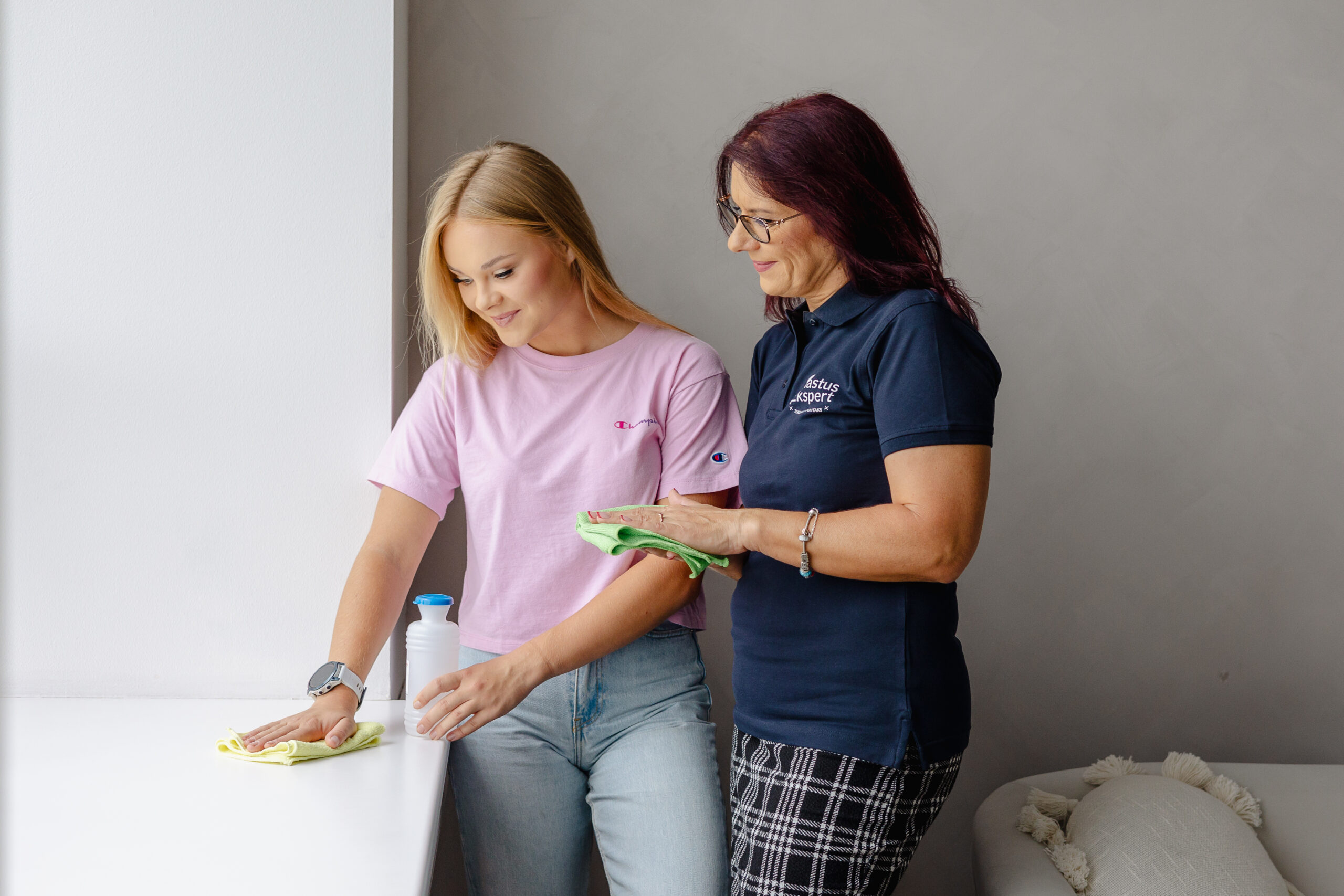Job shadowing to Sweden from 13 to 15 August 2024
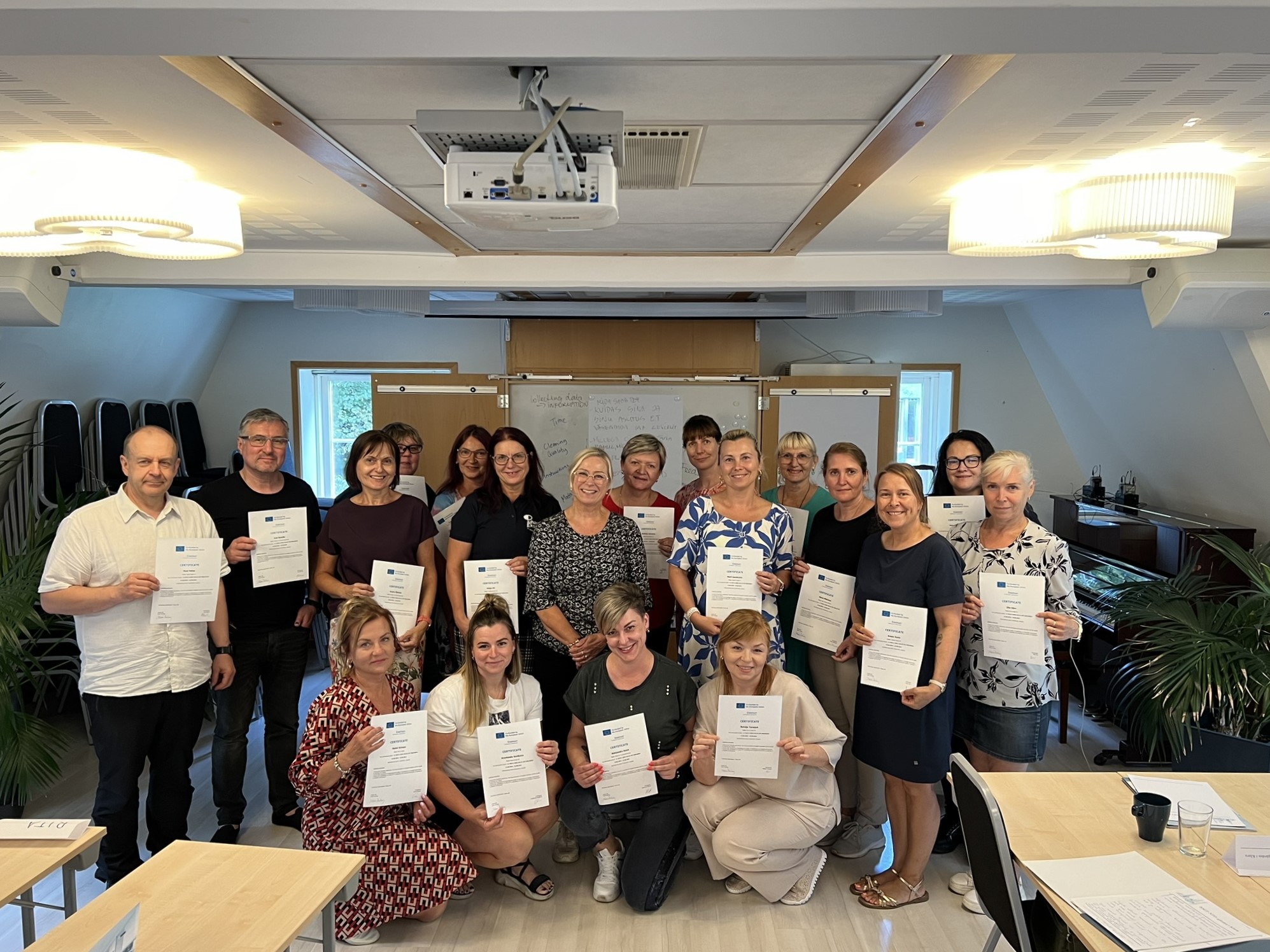
Job shadowing was organised by Karin Perling, a trainer-consultant specialising in hospital cleaning from host organisation Visera AB.
The cross-cutting themes of the program were hospital cleaning, preventing the spread of infections and the importance of assessing cleaning quality in the hospital environment. In addition, the participants learned about the digital collection of cleaning data and how to analyse and draw conclusions from this data based on the experience of Swedish hospitals. During the training days, Karin gave an in-depth presentation on the principles of hospital cleaning, including how to prevent the spread of infections.
Some highlights from the program
- 80% of infections are transmitted through hands, so hand hygiene is crucial.
- It is very important in hospitals to know who goes where and to have the same hygiene standards for everyone. It would be inconceivable for a technician to move around the operating room in their personal clothes (which sometimes actually happens) while different rules apply to doctors and nurses.
- Providing consistent and regular information and feedback is crucial.
- There are no uniform cleaning rules. Each room/department/object has different cleanliness requirements depending on the purpose of the room.
- Swedish hospitals have stickers indicating the level of cleanliness in the room and how many times a week the desired level of cleanliness must be achieved.
- Clothing plays a very important role in preventing the spread of infections. Research in Sweden found that disposable clothing releases significantly fewer skin flakes carrying infectious bacteria. It also showed that women spread fewer skin flakes than men.
- We were reaffirmed on the importance of drying. It is important to dry microfibre cloths in the machine after washing, otherwise the bacteria on the fabric may start to reproduce, causing the soil to spread again.
- Needs-based cleaning is key. Various research and case-studies have shown that this is the only way to deliver a consistently high level of cleanliness while making optimal use of resources. Needs-based cleaning can only be achieved through the introduction of digital cleaning solutions.
- Did you know: in the Middle Ages, it took 70 years for the plague to spread around the globe, but SARS-CoV-2 (COVID-19) took just 3 months. This demonstrates clearly that when people travel around and fail to take preventive measures, diseases and infections spread many times faster.
We went job shadowing as part of a case study at Norrköping Hospital. There, we were able to see how hospital cleaning actually works. The hospital’s cleaning quality manager Bitte welcomed us at Norrköping Hospital. We were shown the processes and activities developed to prevent the spread of soil and infections. Every action and process had a specific reason. We also saw what tools and methods they use.
Some interesting facts about the hospital
- The hospital has completely switched to the use of palm-sized microfibre cloths. The main reason is to avoid folding the cloth, as it has been scientifically proven that micro-organisms and infectious bacteria are able to penetrate through the microfiber cloth to the clean side, which facilitates the spread of soil and infections.
- Cleaning rooms are separated into a clean zone and a non-clean zone. Cleaning cloths and trolleys are cleaned in the non-clean zone and then moved on to the clean zone. Industrial washing machines are double-sided, which means that soiled cloths are put in the non-clean zone and clean cloths are taken out of the machine in the clean zone on the other side of the partition.
- The hospital only uses moistening bottles because it has been scientifically proven that spray bottles contribute to the spread of diseases and infections since it is impossible to clean the end of the spray nozzle (where the cleaning agent is expelled), making it a favourable place for bacteria to reproduce and spread.
- A lot of emphasis has been placed on providing instructions to employees. There are information boards everywhere with instructions on what to do and in what order.
The article was compiled by: Aron Alt


